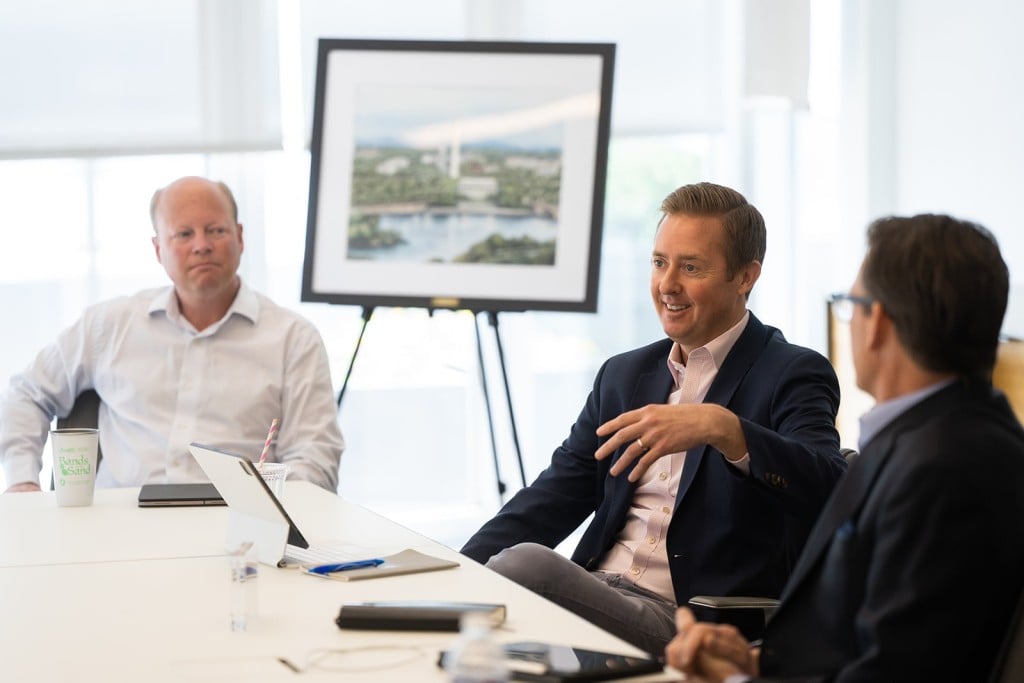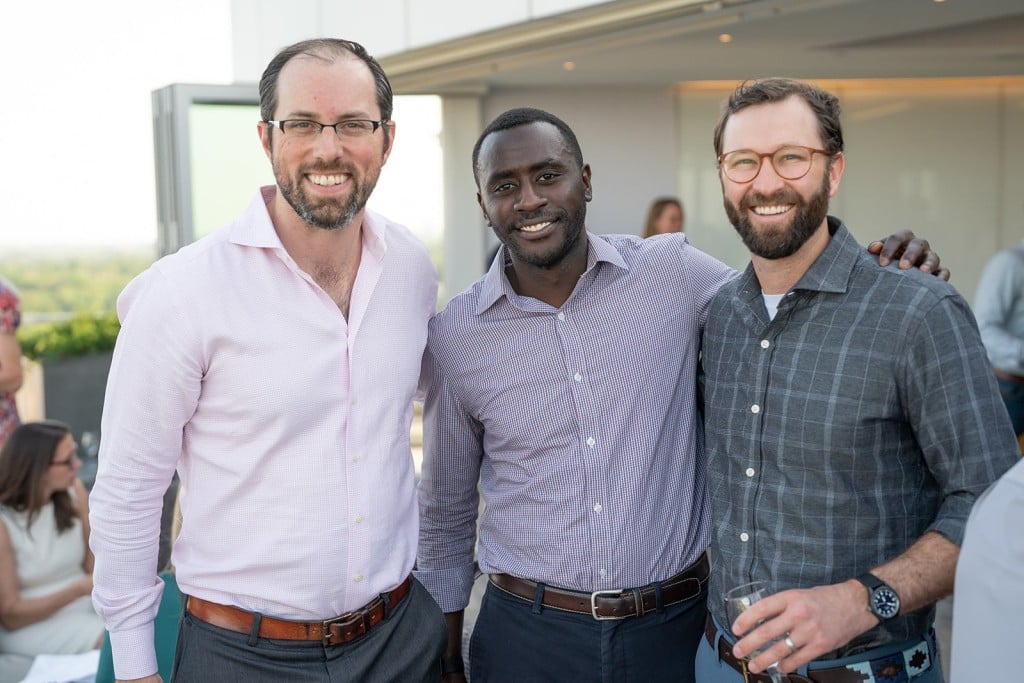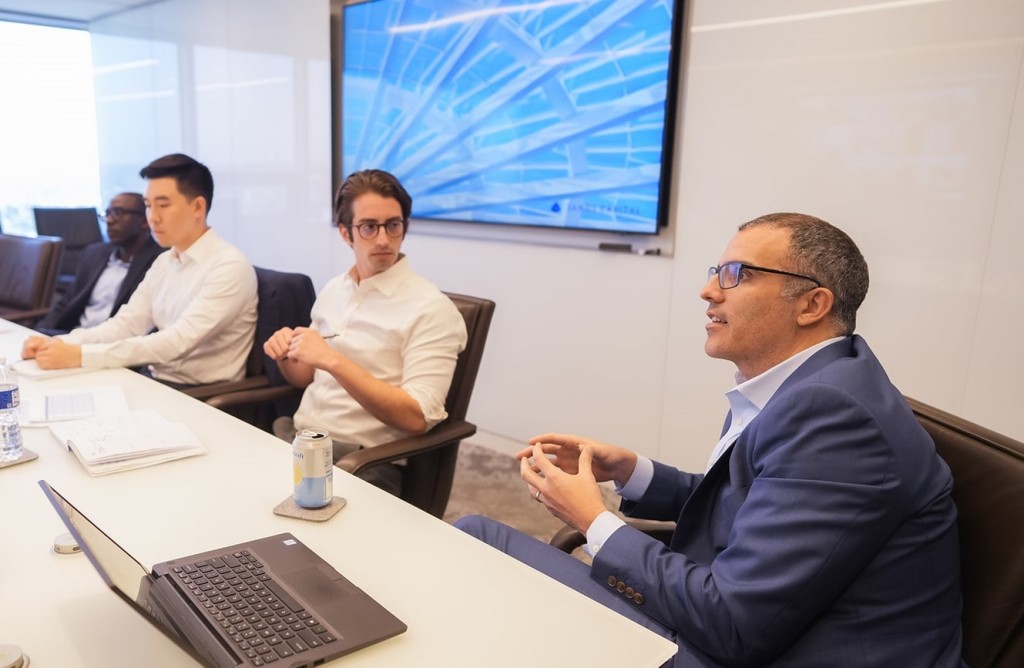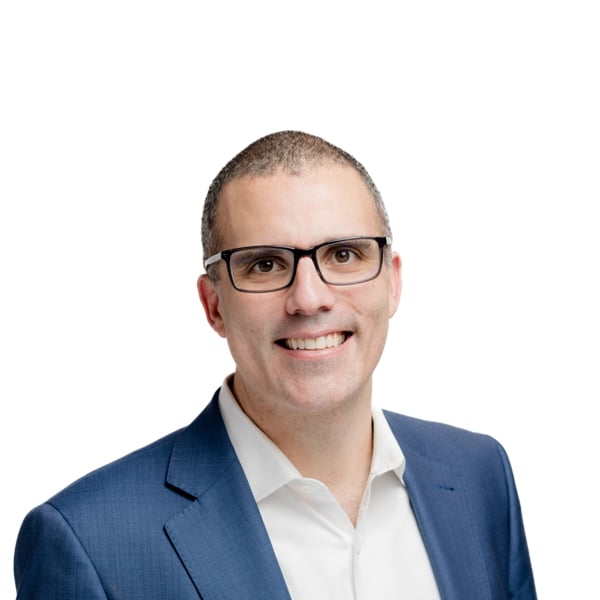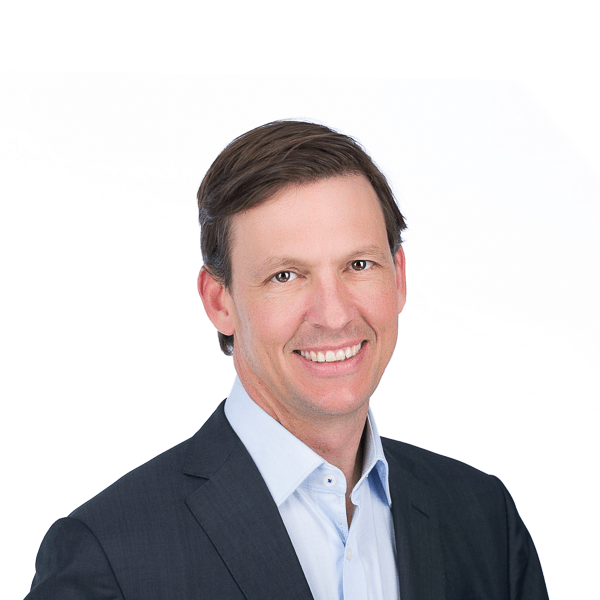Related Articles
Senior Portfolio Manager Brian Christiansen discusses what we should expect from emerging markets and why active management matters.
Transcript | |
|---|---|
00:00:00:00 – 00:00:04:07
Kevin: Hello. I’m joined today by our co-portfolio manager on the Emerging Markets Growth strategy, Brian Christiansen. Reflecting on the last couple of years, I think a lot of our prospects and clients have noted that the emerging markets generally have trailed domestic markets in terms of investment results despite the dynamism and change going on in those specific countries within the emerging market space. So the question we get—and that, hopefully, Brian can address for us today—is: Emerging markets, why bother?
00:00:30:21 – 00:00:54:04
Brian: Yes, Kevin, that’s a provocative question and one that we’ve gotten from a handful of both clients and prospects. And I think it’s an important one. I do think that there’s some context that I can provide on the way we think about the question. The first is absolutely yes, EM [emerging markets] has underperformed global equities over the last five to 10 years. Interestingly, if you look over the last 20 years, that hasn’t been the case. EM had outperformed. But, you know, we’re in a part of the cycle where there is meaningful underperformance for the asset class. So then the natural question is: What should we expect going forward? If you look at the drivers of the underperformance, there’s sort of, you know, three things that made up the bulk of the underperformance of the MSCI EM versus the MSCI ACWI [all country world index] benchmarks.
00:01:29:07 – 00:02:03:18
Brian: One is the fact that we’ve had an incredibly strong U.S. dollar cycle. So currency has been a headwind. And then the two others are essentially China in the big down cycle that we’ve seen over the last few years since COVID-19 and then Russia’s exit from the benchmark after the invasion of Ukraine. So those three things led to the largest chunks in terms of underperformance for EM versus the ACWI. Additionally, what’s interesting is that a big driver of global equities has actually been the U.S. And so, if you pull that out, then EM, while underperforming, it’s in the same ballpark as, you know, other asset classes like Japan or Europe, just to put things in perspective. But let’s put all of that aside for a moment because I think this is true for all of our strategies—but particularly in the context of our investment philosophy and process in applying that to emerging markets—is we are not invested in the asset class, so to speak. And we think that the index does not have, you know, a full sort of coverage of the full opportunity of developing economies in the way the index is constructed. You know, much of the index is either tied to state-owned enterprises, or it can be tied to sort of industrial 1.0 type of companies rather than new economy type businesses, where we tend to find more opportunities. There are some quirks in terms of country classification and how a company gets included in the benchmark. I won’t go into all the details, but the broader point is we actually think the asset class opportunity is much larger than actually what the index constituents themselves represent.

In addition to that, we continue to see a lot of dispersion in terms of returns across countries and geographies. You know, interestingly, if you look at the MSCI EM ex-China benchmark, those results have actually been much, much better than the MSCI EM overall, which is another example of the dispersion that we’ve seen and the headwinds that China’s, you know, kind of brought down the asset class over the last a few years. And when we have dispersions in terms of countries, in terms of sectors and companies, that’s actually fertile ground for alpha generation.
And then the final point that I would make is we find opportunity at the intersection of underlying change and innovation. And there is a tremendous amount of change happening in EM. And we think it’s happening at a time when valuations are relatively attractive and where there are private publicly traded businesses that are either driving or benefiting from that underlying change and owning a concentrated portfolio of those types of businesses we think can deliver very strong investment results when you’re looking out over the next five-plus years in both an absolute and a relative perspective. So we’re as excited as ever for the emerging markets opportunity, although we do believe it’s a fair question in terms of if you look in the rearview mirror over the last five years.
00:05:02:18 – 00:05:12:06
Kevin: So that’s interesting. Summing up what I think you said is that finding those pockets of opportunity and growth is critical. But with the geopolitical instability out there as well, avoiding pockets of disruption and chaos is also important, which just leads me to believe that EM is the kind of market that favors active management versus broad indexing. And so the headwind maybe to active management right now—and you can tell me if this is right or wrong—is that correlations are still very high across most stocks within the emerging market space. And until you start to see those idiosyncratic breakouts …
00:05:44:22 – 00:06:13:01
Brian: Yes, I actually think that what’s happened is the correlations have been a little bit higher for EM versus the other asset classes or other global equities. And so EM hasn’t been as much of a diversifier versus other, you know, global equity geographies. But I would actually submit the fact that I do think there’s been a lot of dispersion and outcomes within each, which is, you know, creating fertile ground for active investors. And so that’s been a big benefit to active investors. One of the questions that we got actually, you know, from one of the conversations we’ve had with clients and prospects is: You’ve done a fantastic job delivering on alpha generation, but when are we going to see more beta coming out of EM? And I think the answer to that is we had a confluence of factors over the last three years—again, U.S. dollar strength, China, Russia—that we think are unlikely to repeat when you’re looking out over the next five to 10 years.
We have attractive starting points in valuation, and we have a lot of underlying change happening in these economies that creates opportunities for leading disruptive businesses or what we call those classic growth compounders that are just better executers in what can largely be informal markets. And by having a strong portfolio of those types of businesses that deliver above-average earnings over a full cycle of five-plus years, we think that’s going to translate into superior stock outcomes.
But your point about it’s not just about what you own, it’s also about what you don’t own. And that’s something that we talk internally a lot about, where investment results are a function of both of those— the decisions of what you decide to invest in but also the decisions of what you decide not to invest in very purposefully.
00:07:40:12 – 00:07:51:05
Brian: And that’s, you know, a very meaningful part of the discussion. And you really have to pick your spots going forward, in the end, because we think, as the China example has demonstrated, not all of these countries are behaving similarly right now.
00:07:58:00 – 00:08:01:11
Kevin: Yes, great. Well, thanks for that. That’s really insightful.
00:08:01:13 – 00:08:03:05
Brian: Absolutely.
Disclosures:
The views expressed are the opinion of Sands Capital and are not intended as a forecast, a guarantee of future results, investment recommendations, or an offer to buy or sell any securities. The views expressed were current as of the date indicated and are subject to change. This material may contain forward-looking statements, which are subject to uncertainty and contingencies outside of Sands Capital’s control. Readers should not place undue reliance upon these forward-looking statements. There is no guarantee that Sands Capital will meet its stated goals.
Past performance is not indicative of future results. All investments are subject to market risk, including the possible loss of principal. International investments can be riskier than US investments due to the adverse effects of currency exchange rates, differences in market structure and liquidity, as well as specific country, regional and economic developments. Investments in emerging markets are subject to abrupt and severe price declines. The economic and political structures of developing nations, in most cases, do not compare favorably with the U.S. or other developed countries in terms of wealth and stability, and their financial markets often lack liquidity. Because of this concentration in rapidly developing economies in a limited geographic area, the strategy involves a high degree of risk. In addition, the strategy is concentrated in a limited number of holdings. As a result, poor performance by a single large holding of the strategy would adversely affect its performance more than if the strategy were invested in a larger number of companies. The strategy’s growth investing style may become out of favor, which may result in periods of underperformance. Differences in account size, timing of transactions and market conditions prevailing at the time of investment may lead to different results, and clients may lose money.
A company’s fundamentals or earnings growth is no guarantee that its share price will increase. Forward earnings projections are not predictors of stock price or investment performance, and do not represent past performance. Characteristics, sector exposure and holdings information are subject to change, and should not be considered as recommendations.
This material is for informational purposes only and does not constitute an offer, invitation, or recommendation to buy, sell, subscribe for, or issue any securities. The material is based on information that we consider correct, and any estimates, opinions, conclusions, or recommendations contained in this communication are reasonably held or made at the time of compilation. However, no warranty is made as to the accuracy or reliability of any estimates, opinions, conclusions, or recommendations. It should not be construed as investment, legal, or tax advice and may not be reproduced or distributed to any person.
In the United Kingdom, this communication is issued by Sands Capital Advisors – UK Ltd (“Sands UK”) and approved by Robert Quinn Advisory LLP, which is authorised and regulated by the UK Financial Conduct Authority (“FCA”). Sands UK is an Appointed Representative of Robert Quinn Advisory LLP. This material constitutes a financial promotion for the purposes of the Financial Services and Markets Act 2000 (the “Act”) and the handbook of rules and guidance issued from time to time by the FCA (the “FCA Rules”). This material is for information purposes only and does not constitute an offer to subscribe for or purchase of any financial instrument. Sands UK neither provides investment advice to, nor receives and transmits orders from, persons to whom this material is communicated, nor does it carry on any other activities with or for such persons that constitute “MiFID or equivalent third country business” for the purposes of the FCA Rules. All information provided is not warranted as to completeness or accuracy and is subject to change without notice. This communication and any investment or service to which this material may relate is exclusively intended for persons who are Professional Clients or Eligible Counterparties for the purposes of the FCA Rules and other persons should not act or rely on it. This communication is not intended for use by any person or entity in any jurisdiction or country where such distribution or use would be contrary to local law or regulation.

